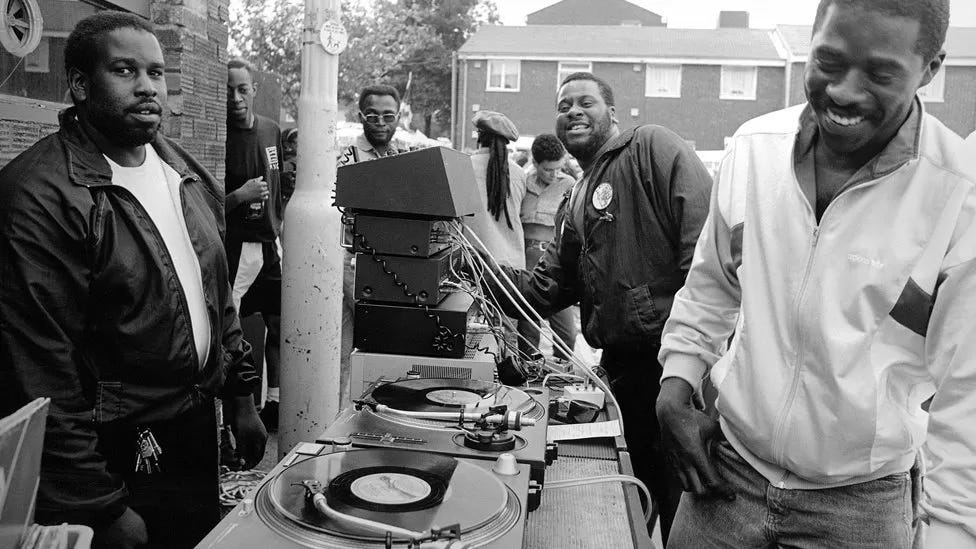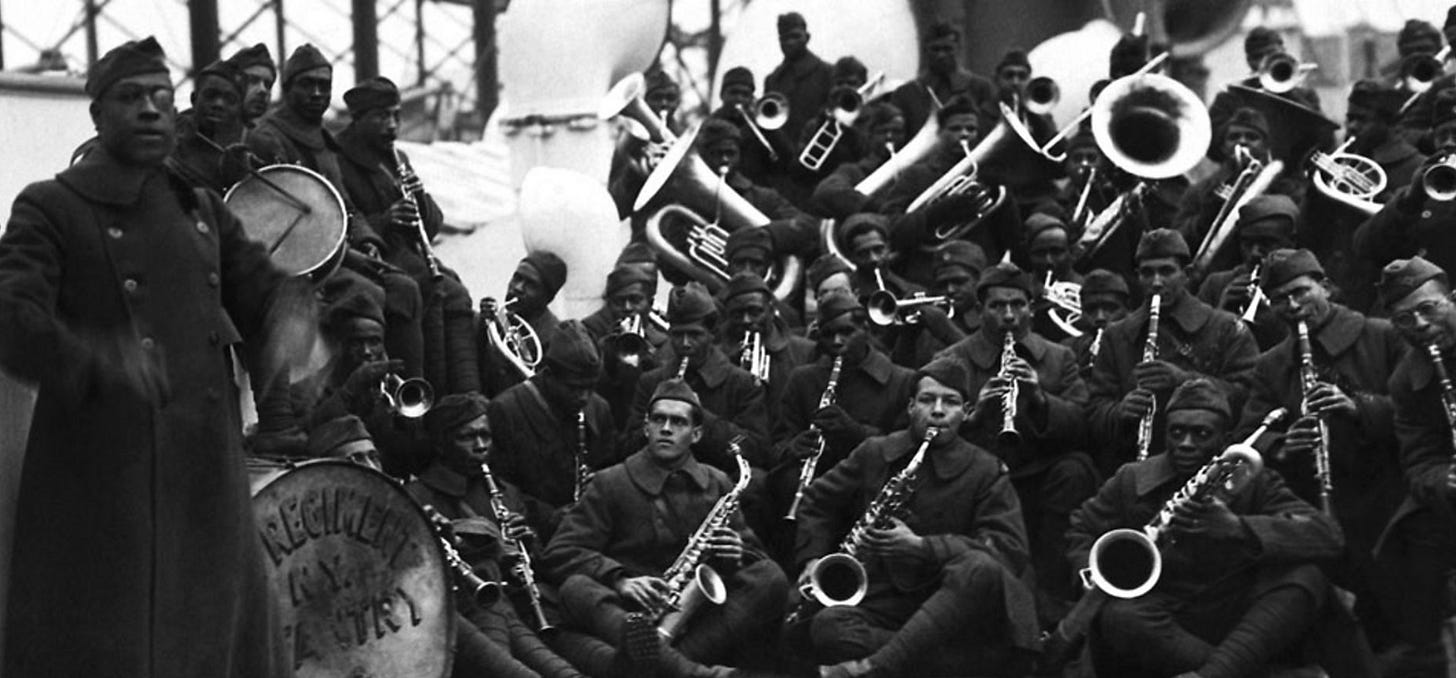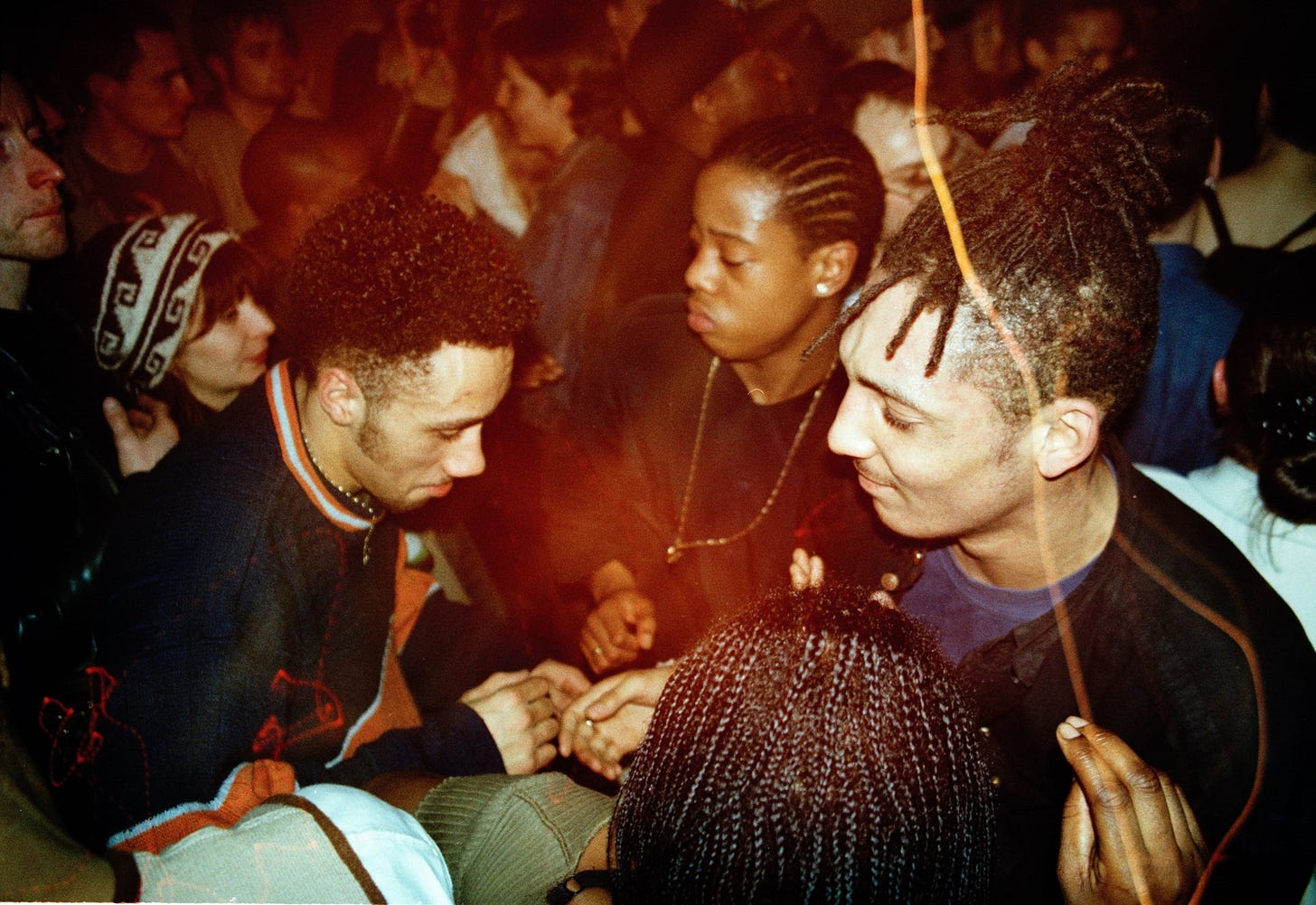"A story about people" - Mykaell Riley interviewed, pt. 1
Black British soundsystem culture and the roots of UK dance music
Hi there, and thanks for reading - I’m Ed Gillett, an author and journalist focusing on the points where politics, policing, communities and culture meet.
My first book, Party Lines, comes out in August. From the illicit reggae blues dances and acid-rock free festivals of the 1970s, through the ecstasy-fuelled Second Summer of Love in 1988, to the increasingly corporate dance music culture of the post-Covid era, Party Lines is a groundbreaking new history of UK dance music, exploring its pivotal role in the social, political and economic shifts on which modern Britain has been built.
In the lead-up to the book’s release, I’ll be sharing some of the fascinating material I’ve uncovered during the writing process, from weird rave ephemera to extended interviews with people who’ve been instrumental in the social and political evolution of UK dance music over the decades.

When I started writing Party Lines in 2021, the first name on my list of people to interview was Mykaell Riley - originally the vocalist for Grammy-winning Birmingham-based reggae band Steel Pulse, now Director of the Black Music Research Unit at Westminster University, and their Principal Investigator for Bass Culture Research, as well as a regular contributor on topics relating to Black music across the media.
One of the key themes of Party Lines’ early chapters is the erasure of antecedents like the blues dance and Black soundsystems from canonical histories of rave culture. This is a topic on which Mykaell has focused extensively in his academic and other work, and about which he’s spoken insightfully and powerfully for several years. I can think of nobody better to start unpicking some of these issues, and re-assert the role of Black British sound as the foundation stone for the ensuing history of UK dance music.
What follows is a transcript of our conversation, edited for length and clarity.
Hi Mykaell, thanks so much for speaking to me. There are lots of places we could start, but I wanted to ask about your academic and other work: specifically how you’ve tried to address historical imbalances in the mainstream narrative around UK dance music.
I think one of the interesting things over time is what is lost - in terms of what’s written down, how it’s curated, and / or suppressed, or just ignored - and the role played by academia. Historically, what’s been written has a relationship to income, class status, education - that whole journey into having some kind of certification of knowledge, through academic teaching and qualifications. Whether you have a BA or Masters or PhD might seem unrelated, but what I’ve realised is the relationship between experiences, how they’re captured, curated, written down and then reiterated or regurgitated.
And when it comes to music, the historical presence of a white, male, third-party overview of what has taken place within Black communities is the dominant position. Here in the UK I would argue things have been dominated by that particular perspective, which over time - I think up to the early 2000s - left out a large chunk of what really happened, or it was heavily influenced by a particular perspective.
I’ve noticed that, in terms of students coming to university and talking about dance music - at one point drum n bass, currently afro-pop, afrobeats, Afrofuturism and so forth - there’s a disconnect as to the history and the culture that goes with it. There’s a lot of work to be done to fill in the gaps, listening to some of that information, to bring it forward and have it included in this narrative.
When we look at the contributions from the Windrush, that for me is just a line in the sand. That presence starts earlier. It starts with jazz musicians challenging what happens in ballrooms, it starts with the Second World War, with African Americans and African Caribbeans and what they brought with them as music, and then how they attempted to engage with that music: challenging the state, challenging policing, challenging local communities and perceptions.
And it’s in that challenge to perceptions that we discover what that dominant culture is really about, what the government is about, and how they’re trying to contain this new cultural influence.
But really this is about cultures and people, and how people have challenged what’s culturally acceptable in various spaces through the medium of music. To arrive where we are now without filling in those gaps, for me, is a bit of a nonsense. It’s a story about people - about how we engage with each other through music, as a medium to bring together communities and cultures challenged by misconceptions perpetrated by the state.

I think even the term “rave” is interesting, because there’s a history of the term within soundsystem culture. I don’t want to get into etymology too much, but there are I think certain phrases which come out of a culture, and get disconnected from the culture of soundsystems, that should be reconnected. Because it shows that it’s bigger than just music.
The African Caribbean community offered a new perspective on sound, which challenged what was considered the “correct” listening experience, born out of the classical music space as much as anything. The African experience carried a different resonance, a different frequency, and challenged social norms in the UK or the West more generally. It was considered hugely disruptive: the bass frequency which travels far beyond its origins in a house, to next door or down the street, which was described as noise rather than sound, and seen as hugely aggressive. It was never explained, in the same way that the African Caribbean community was never explained to the Brits, who were allowed to remain ignorant of their historical contribution.
A lot of what you’re saying here reminds me of the early years of acid house. We’re often told that it exploded out of nowhere in 1987, when in fact underground Black British audiences were dancing to house music for several years before that. How do those disparities around race, class and gender determine how UK dance music functions, or the stories which get told about it?
So there are some great female academics working on this: people like Julia Toppin, Joy White and Monique Charles, who was the first person to get a PhD in grime. What’s interesting in these perspectives is that, one, it flags up the female side of things, and the extent to which that’s generally written out of the record by men of all descriptions. But they’ve also identified areas where things which are described as a male contribution might have started out as a response to women within that space: whether to get women dancing, or to chat them up; another very subtle component that was missing.
In terms of the timeline: as part of the BMRU’s report on grime we made a film called Bass Culture, which asked DJs to curate their own history, up to the point where we arrived at grime; when we hit the early 90s, people start talking about drum n bass, but from a Black DJ’s point of view it started much earlier, with them bouncing off soundsystem culture. And we looked at the way they saw it written about: as “jungle” then “intelligent”, which was a term that white musicians started getting involved in, and then we went to “drum n bass”. It was a curated invasion, almost, by journalists and the media in an attempt to explain what was happening musically, and they moved the creative process from a Black community into a dominant white community. And it wasn’t properly challenged from the Black community, which didn’t have the journalistic presence, power or profile and so forth, so then it became accepted as fact.
Another interesting thing that came out of those interviews were DJs saying that they listened to early house but “the beats in the rave clubs weren’t falling in the right place… we were coming out of soundsystem culture, and we were sampling house, but we were looking at bringing something together that we could play on a soundsystem.” Because the bass has to fall, as it always has done, in the right place within the context of African Caribbean music, where the bass is dominant. So Black DJs and producers took the idea of sampling, and mashing up bears and borrowing from records from previous decades, but repositioned the bass, in a way that they could still play it on soundsystems.

From the perspective of Black DJs and artists, they were saying “Look, we were doing this long before it even had a title, we were going to Spain too, going to the same clubs, and yeah, we’d take acid and E, but when we got back to the UK, we weren’t allowed to play, weren’t given the same jobs.”
So there’s a constant challenge within the Black community in the UK: first to have access to the same clubs, just to get in the door as a punter. The next challenge is to get in and work, to be able to play your music as a DJ - and what’s interesting is that this wasn’t about the audience, who just wanted to go out and have fun and were always, broadly speaking, receptive. But then finally there was a challenge for those creative communities when they went off and created something of their own: every three to five years, the Black community would be restricted from the scene they helped create, and have to go off and create another scene, in order to have a space to be.
This appeared very quickly within jungle: within 12 months we have drum n bass, there was an attempt by the media to make it about the white musicians and producers that got involved, and then the dominant names start becoming white artists. But throughout that there’s a whole generation of DJs who feel aggrieved in terms of how they’re treated by the record companies, how they're treated by the police in terms of the venues, how they're treated by the media in terms of writing about their contributions, or being written out of the narrative.
For me, the importance of this is not just about the musicians, it's about a historical repositioning of a creative contribution as somewhat lesser or non-existent. The term “cultural appropriation” is a shorthand, but for something that's been happening - it's not covert because it's in your face, but I think unchallenged - for so long that it's been normalised. I think even the journalists don't necessarily feel obliged to do anything different, so you write about it in the same way. And for me that’s been a constant: as we move through the decades, what we see is that constant played out. But it’s only when we look back retrospectively now, as a Black community, and ask what’s been left out of that narrative that we start to look in detail at these contributions.
I’ll be sending out pt. 2 of this interview, covering Mykaell’s experiences of the music industry and the policing of Black British dancefloors from the 1970s onwards, very soon. Subscribe below to read it!



